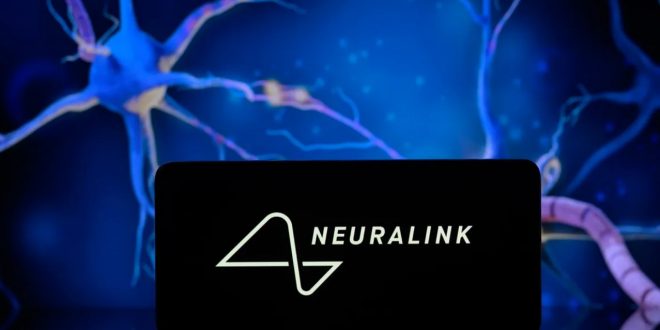According to reports, the first human receiver of Neuralink’s contentious brain implant has achieved a significant advancement by controlling a computer mouse cursor only via their thoughts.
Reuters reported that Elon Musk, the inventor of Neuralink, provided an update on the trial subject’s progress on February 19 using Spaces, a platform for audio chats on the social media site X (formerly known as Twitter), which Musk acquired in 2022.
Progress is positive, and the patient seems to have fully recovered, with known neurological improvements. The patient can control the movement of a mouse on the screen by thought alone, according to Musk.
The update was released within a month after the announcement that the first person had been implanted with a Neuralink device.
Brain-computer interfaces are not a novel concept. In 2021, the company Synchron obtained an FDA license to test a device that can be put into a blood vessel instead of requiring major brain surgery, beating Neuralink to the milestone.
Neuralink received FDA approval for the PRIME study in May 2023 after its first application was denied. However, the trial does not seem to be listed in the National Institutes of Health’s online repository, which is typically necessary for medical journals to publish trial results.
Among several BCI techniques, Neuralink’s stands out as the first wireless model capable of capturing inputs from individual neurons, a feature many experts consider crucial for achieving advanced functionalities. Eliminating the need for the implant to be connected to an external computer reduces the risk of infection and enables users to engage in their daily routines without being physically tied to a device.
If these trials are successful, it could revolutionize the lives of paralyzed patients by improving communication and increasing independence. Currently, only one chip has been implanted, indicating that the process is still in its early stages.
Neuralink’s research has faced criticism and controversy. The Physicians Committee for Responsible Medicine (PCRM) filed a complaint against the corporation alleging that early animal tests with brain implants, as seen in images from the University of California Davis, resulted in needless suffering. Reuters subsequently reported that a government probe involving possible animal welfare offenses had been initiated.
The PCRM accused Neuralink of shipping dangerous material from monkey tests unsafely, prompting a second federal probe.
Several scientific organizations and patient advocacy groups are dissatisfied with what they see as a lack of transparency regarding the status of the human experiment today.
University of Oxford neuroengineer Tim Denison said to Nature that without the experiment being recorded in the public repository, there is little information available. Denison said that he believes the FDA and Neuralink are pursuing a specific strategy. “However, we lack the protocol.” We are uncertain about it.
 Tech Gadget Central Latest Tech News and Reviews
Tech Gadget Central Latest Tech News and Reviews




